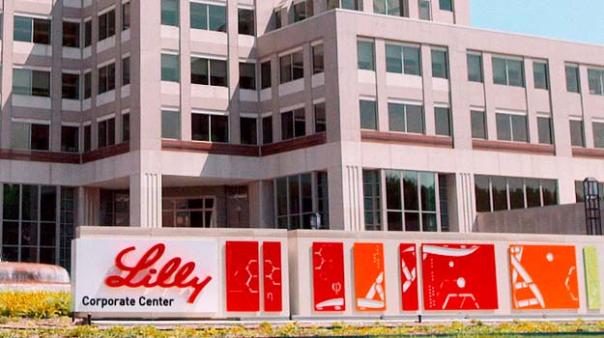Lilly announces "catastrophic" data for the Alzheimer's disease trial
January 29, 2018 Source: Sina Pharmaceutical
Window._bd_share_config={ "common":{ "bdSnsKey":{ },"bdText":"","bdMini":"2","bdMiniList":false,"bdPic":"","bdStyle":" 0","bdSize":"16"},"share":{ }};with(document)0[(getElementsByTagName('head')[0]||body).appendChild(createElement('script')) .src='http://bdimg.share.baidu.com/static/api/js/share.js?v=89860593.js?cdnversion='+~(-new Date()/36e5)];Eli Lilly and Company recently announced the clinically catastrophic failure data of Solanezumab (sorapizumab) in the treatment of Alzheimer's disease, which also indicates that the amyloid plaque problem in the Alzheimer's disease study has not been resolved. .

In an article in the New England Journal of Medicine, Eli Lilly said that sorazumab did not significantly delay cognitive decline in patients with Alzheimer's disease. In 2016, US pharmaceutical giant Eli Lilly announced that a phase III clinical trial was conducted in patients with mild Alzheimer's dementia to investigate the efficacy and safety of sorazumab. The researchers believe that sorazumab may be effective in targeting amyloid beta protein, stopping or at least significantly slowing disease progression. But now it seems that this is a dead end.
In this article, Lilly stated that it did not achieve significant clinical significance in determining whether or not sorabizumab was effective. A total of 2,129 patients were enrolled in the trial (1057 received sorazumab and the remaining 1072 received placebo). According to Eli Lilly, the average ADAS-cog14 score changed from baseline to 6.65 for the sorazumab group and 7.44 for the placebo group, which means that there was no significant difference in efficacy between the two groups after 80 weeks of treatment.
Lilly wrote in the article abstract: "Research shows that patients with mild Alzheimer's disease do not significantly improve cognitive decline by taking a 400 mg dose of sorazumab every 4 weeks."
"Forbes" wrote that the latest information disclosed by Eli Lilly will disappoint researchers who believe in the Alzheimer's beta amyloid deposit protein hypothesis. Citing Michael Murphy, a professor at the University of Kentucky's Sanders-Brown Aging Research Center, said the failure of the Lilly trial suggests that the industry should "question the academic hypothesis."
Lilly scientist Steven Paul and his team published the results in 2002: monoclonal antibody m266 (rat version of sorabizumab) can increase the concentration of Aβ protein in the plasma of Alzheimer's model mice. It precipitates Aβ amyloid in the body, which can quickly alleviate the memory loss of model rats. However, the results of the latest published trials are disappointing, making it doubtful about the reliability of this academic hypothesis.
However, this does not allow the hypothesis to be unsuccessful. We should also continue to pay close attention to some relevant research progress including Biogen's aducanumab. Biogen seems to have confidence in the future of Alzheimer's drugs that use this mechanism. In October last year, the Boston-based company announced that it would increase the profit potential of the drug by paying an additional $150 million to Neurogenmune, a company that licensed Biogen. If Alzheimer's disease drugs are available for sale, this will reduce Biogen's future royalties. According to Biogen's early data from the aducanumab clinical Phase Ib trial, Alzheimer's disease-associated β-amyloid plaques in the brain of patients receiving this drug have declined, and the progression of cognitive decline has also slowed. .
However, Lilly responded that it would still choose to continue developing treatments for Alzheimer's disease. Lilly believes that amyloid will accumulate in the brain 15-20 years before the onset of Alzheimer's symptoms, so Alzheimer's disease may need to intervene early in the disease progression. With the new advanced diagnostic technology, patients can perform relevant targeted treatments earlier. (Sina Pharmaceutical Compilation / Fan Dongdong)
Article, image reference source: At Last: Eli Lilly Publishes Data for Catastrophic Alzheimer's Trial
Our products are exported to all over the world, facing Europe, America and Asia and other countries, there are a large number of hot products in stock at present, there are plant extracts, amino acids, Vitamins and other products, the price is preferential, quality assurance, is our very popular products in the market, waiting for your inquiry and purchase.
Plant Extracts,Amino Acids,Vitamin Products,Medical Excipients
PYSON Co. ,Ltd. , https://www.pysonbio.com